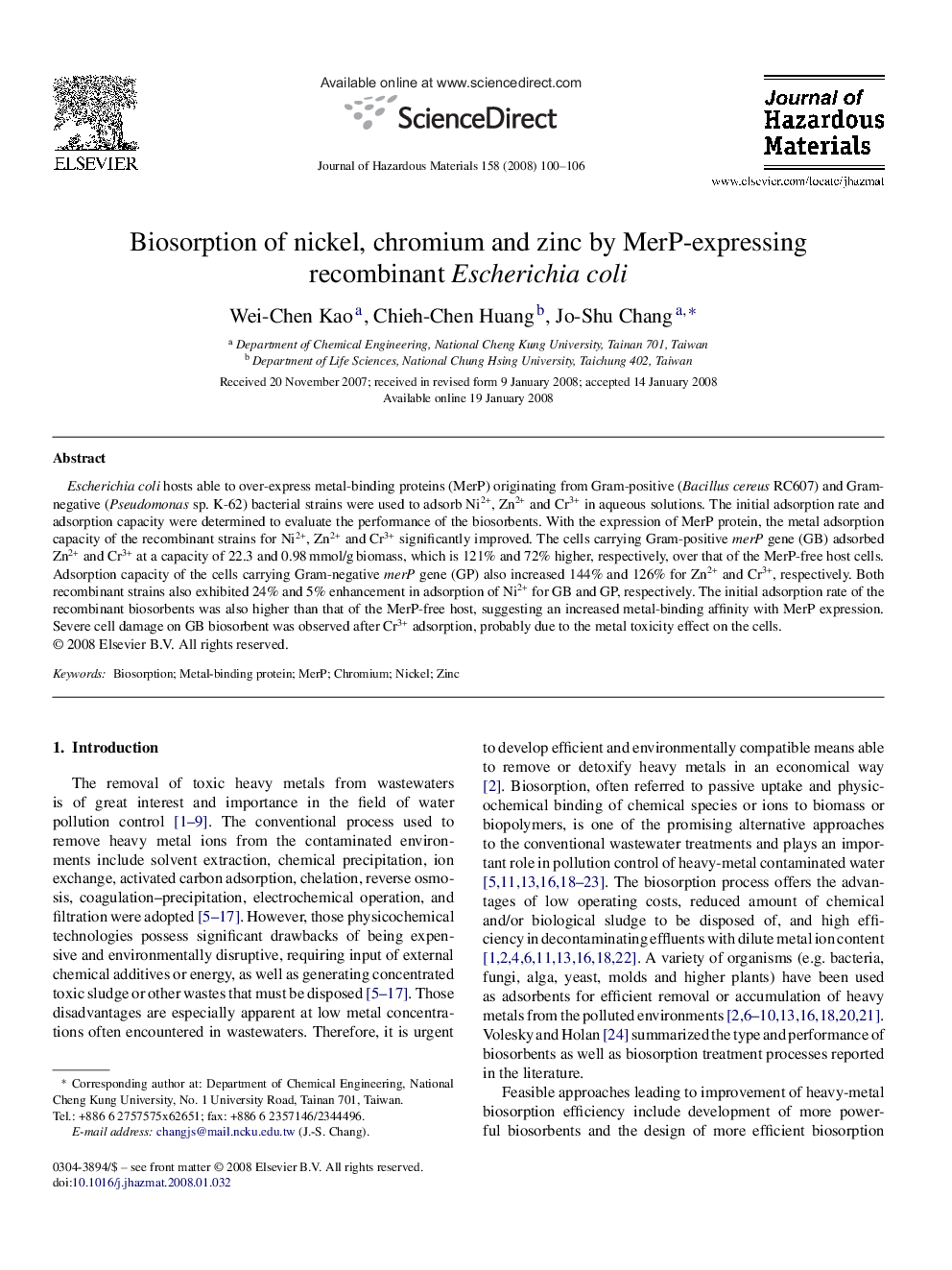| Article ID | Journal | Published Year | Pages | File Type |
|---|---|---|---|---|
| 582851 | Journal of Hazardous Materials | 2008 | 7 Pages |
Abstract
Escherichia coli hosts able to over-express metal-binding proteins (MerP) originating from Gram-positive (Bacillus cereus RC607) and Gram-negative (Pseudomonas sp. K-62) bacterial strains were used to adsorb Ni2+, Zn2+ and Cr3+ in aqueous solutions. The initial adsorption rate and adsorption capacity were determined to evaluate the performance of the biosorbents. With the expression of MerP protein, the metal adsorption capacity of the recombinant strains for Ni2+, Zn2+ and Cr3+ significantly improved. The cells carrying Gram-positive merP gene (GB) adsorbed Zn2+ and Cr3+ at a capacity of 22.3 and 0.98 mmol/g biomass, which is 121% and 72% higher, respectively, over that of the MerP-free host cells. Adsorption capacity of the cells carrying Gram-negative merP gene (GP) also increased 144% and 126% for Zn2+ and Cr3+, respectively. Both recombinant strains also exhibited 24% and 5% enhancement in adsorption of Ni2+ for GB and GP, respectively. The initial adsorption rate of the recombinant biosorbents was also higher than that of the MerP-free host, suggesting an increased metal-binding affinity with MerP expression. Severe cell damage on GB biosorbent was observed after Cr3+ adsorption, probably due to the metal toxicity effect on the cells.
Related Topics
Physical Sciences and Engineering
Chemical Engineering
Chemical Health and Safety
Authors
Wei-Chen Kao, Chieh-Chen Huang, Jo-Shu Chang,
